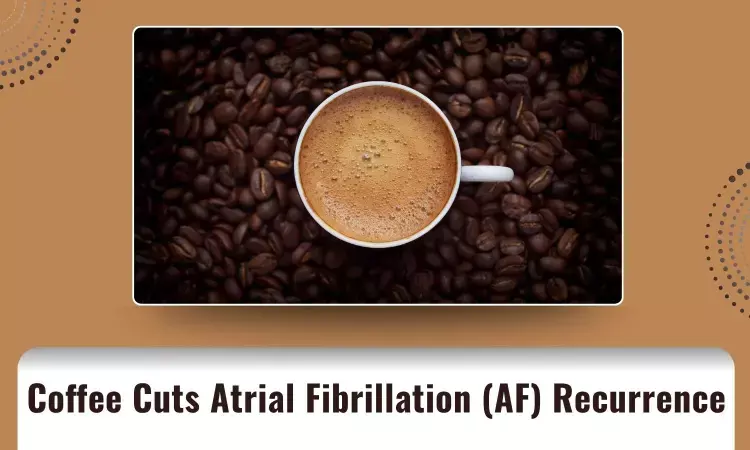- Home
- Medical news & Guidelines
- Anesthesiology
- Cardiology and CTVS
- Critical Care
- Dentistry
- Dermatology
- Diabetes and Endocrinology
- ENT
- Gastroenterology
- Medicine
- Nephrology
- Neurology
- Obstretics-Gynaecology
- Oncology
- Ophthalmology
- Orthopaedics
- Pediatrics-Neonatology
- Psychiatry
- Pulmonology
- Radiology
- Surgery
- Urology
- Laboratory Medicine
- Diet
- Nursing
- Paramedical
- Physiotherapy
- Health news
- Fact Check
- Bone Health Fact Check
- Brain Health Fact Check
- Cancer Related Fact Check
- Child Care Fact Check
- Dental and oral health fact check
- Diabetes and metabolic health fact check
- Diet and Nutrition Fact Check
- Eye and ENT Care Fact Check
- Fitness fact check
- Gut health fact check
- Heart health fact check
- Kidney health fact check
- Medical education fact check
- Men's health fact check
- Respiratory fact check
- Skin and hair care fact check
- Vaccine and Immunization fact check
- Women's health fact check
- AYUSH
- State News
- Andaman and Nicobar Islands
- Andhra Pradesh
- Arunachal Pradesh
- Assam
- Bihar
- Chandigarh
- Chattisgarh
- Dadra and Nagar Haveli
- Daman and Diu
- Delhi
- Goa
- Gujarat
- Haryana
- Himachal Pradesh
- Jammu & Kashmir
- Jharkhand
- Karnataka
- Kerala
- Ladakh
- Lakshadweep
- Madhya Pradesh
- Maharashtra
- Manipur
- Meghalaya
- Mizoram
- Nagaland
- Odisha
- Puducherry
- Punjab
- Rajasthan
- Sikkim
- Tamil Nadu
- Telangana
- Tripura
- Uttar Pradesh
- Uttrakhand
- West Bengal
- Medical Education
- Industry
Trigger or Treatment? Coffee Cuts Atrial Fibrillation (AF) Recurrence in DECAF Trial- AHA 2025 Update

A recent clinical trial demonstrated that consumption of caffeinated coffee averaging one cup a day was associated with less recurrence of atrial fibrillation (AF) or atrial flutter compared with strict abstinence from coffee and caffeinated products among coffee drinkers after successful cardioversion. The results of the DECAF Randomized Clinical Trial were presented at American Heart Association’s Scientific Session 2025 and simultaneously published online in the November issue of Journal of the American Medical Association.
Atrial fibrillation is the most common heart rhythm disorder, with its prevalence rising and estimated to affect up to 1 in 3 people during their lifetime, currently diagnosed in more than 10.5 million individuals in the US alone. The effect of coffee, on AF has been widely debated. Conventional medical wisdom has traditionally held that caffeinated coffee is proarrhythmic, leading physicians to often advise patients to reduce intake. Patients frequently nominate coffee as a trigger for AF episodes. However, prior observational studies have generally reported no heightened or even a lower risk of AF among coffee drinkers. The DECAF trial was conducted to examine clarity on this matter by determining the effect of caffeinated coffee consumption compared with abstinence on recurrent AF.
The DECAF trial was an investigator-initiated, prospective, open-label, international, multicenter, randomized clinical trial. Researchers enrolled 200 adults who were current or previous (within the past 5 years) coffee drinkers. Participants had persistent AF, or atrial flutter with a history of AF, and were planned for electrical cardioversion, recruited from five tertiary hospitals in the US, Canada, and Australia. Patients were randomized in a 1:1 ratio to either regular caffeinated coffee consumption (n=100) or complete coffee and caffeine abstinence (n=100) for a 6-month period. The consumption group was encouraged to drink at least one cup of caffeinated coffee (or at least one espresso shot) daily, while the abstinence group was encouraged to completely abstain from caffeinated and decaffeinated coffee and other caffeine-containing products.
The primary end point measured was clinically detected recurrence of AF or atrial flutter over the 6-month follow-up period. Baseline characteristics were largely balanced between the groups, which included patients with a mean age of 69 years and 71% male participants. Baseline coffee intake was similar, with a median of 7 cups per week in both groups.
During the 6-month follow-up, the consumption group maintained a median coffee intake of 7 cups per week, while the abstinence group successfully reduced intake to a median of 0 cups per week. Overall, recurrence of AF or atrial flutter was documented in 111 patients (56%). Crucially, recurrence was significantly less in the coffee consumption group (47%) compared with the coffee abstinence group (64%). In the primary intention-to-treat analysis adjusted for study site, the time to recurrence was longer in the coffee consumption group, resulting in a 39% lower hazard of AF or atrial flutter recurrence (Hazard Ratio, 0.61 [95% CI, 0.42-0.89]; P = .01). A comparable beneficial effect was observed when analyzing AF recurrence only (HR, 0.62 [95% CI, 0.43-0.91]; P = .01). There was no significant difference in adverse events between the two groups.
The study concludes that allocation to the typical consumption of caffeinated coffee, averaging one cup a day, was associated with less recurrence of AF or atrial flutter compared with abstinence from coffee and caffeinated products among coffee drinkers who underwent successful cardioversion. The continued separation of survival curves overtime implies that this difference may be attributable to a benefit of coffee consumption rather than harm from abrupt coffee cessation. These findings contrast with the traditional proarrhythmic assumption regarding coffee and indicate that consumption of coffee and other caffeinated products may be reasonably considered for patients with AF.
Reference: Wong CX, Cheung CC, Montenegro G, et al. Caffeinated Coffee Consumption or Abstinence to Reduce Atrial Fibrillation: The DECAF Randomized Clinical Trial. JAMA. Published online November 09, 2025. doi:10.1001/jama.2025.21056
Dr Bhumika Maikhuri is an orthodontist with 2 years of clinical experience. She is also working as a medical writer and anchor at Medical Dialogues. She has completed her BDS from Dr D.Y. Patil Medical College and Hospital and MDS from Kalinga Institute of Dental Sciences. She has a few publications and patents to her credit. Her diverse background in clinical dentistry and academic research uniquely positions her to contribute meaningfully to our team.


